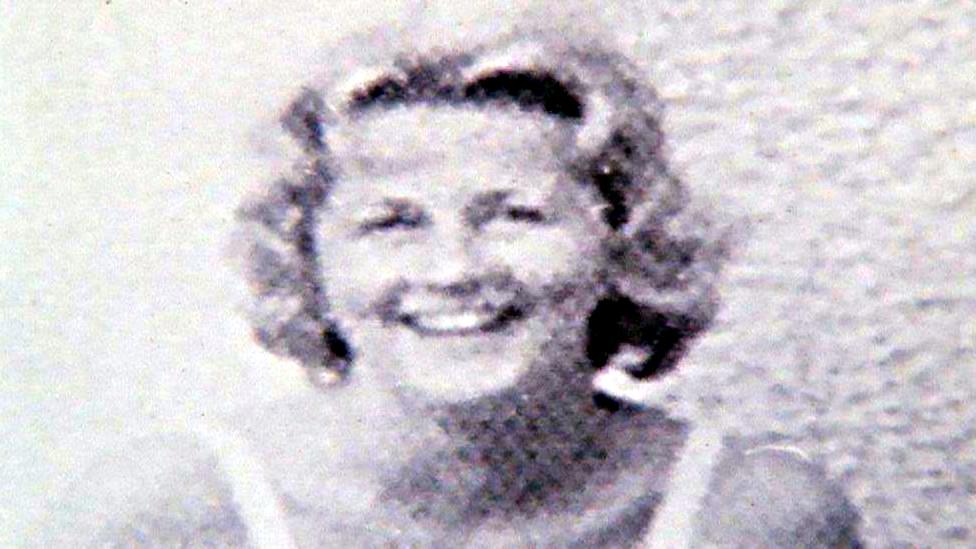Colin Adamson: Cold case unit probing 1983 car-boot murder
- Published
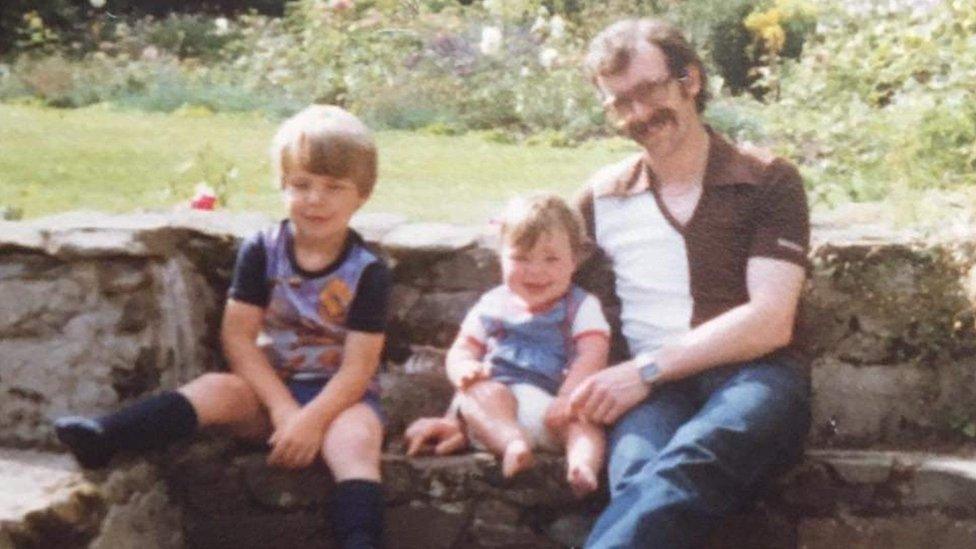
Colin Adamson pictured with his son Evan and daughter Gillian
A cold case unit is investigating the murder of a Scottish man whose body was found in a burned-out car 40 years ago.
Colin Adamson, 33, from Aberdeenshire, was sent to West Germany to work in the oil and gas sector in 1983.
The father-of-two was found in a car boot in woods near the town of Celle days before he was due home for Christmas - his killer was never found.
Details of the case are being examined by the Scottish Cold Case Unit based at Glasgow Caledonian University (GCU).
It is part of an international cold case project involving a number of universities and police forces.
Colin's son Evan told BBC Scotland he and his sister ultimately hoped the killer would be caught - but were keeping their expectations realistic.
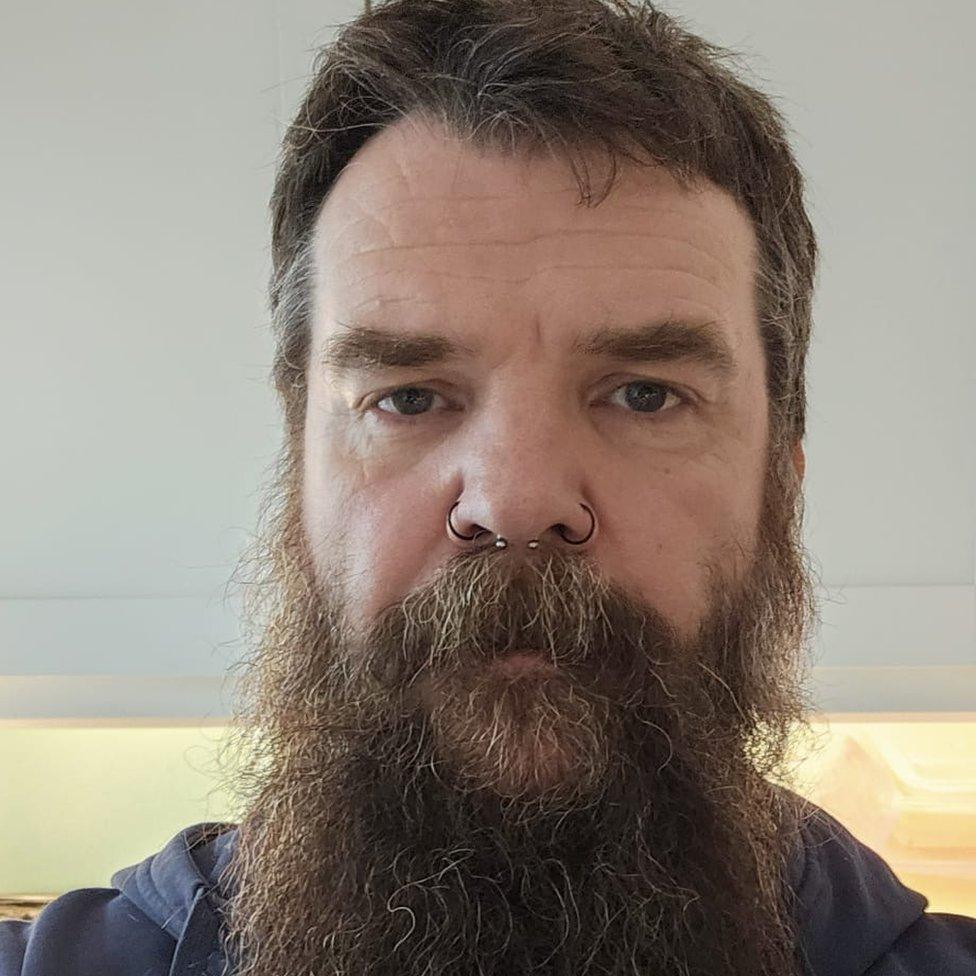
Evan Adamson says the cold case review has brought him hope
"It gives us hope there may be some answers," he said.
"We're well aware that 40 years down the line the people may never get caught. But it feels like something is being looked at.
"With the development of new ways of investigating - just DNA, stuff like that - it gives us a little bit of hope. It makes us feel like we've done all we can to get some kind of resolution."
'Robbery gone wrong' inquiry
Most of what Evan knows about his father comes from his mother Babs.
A former teacher, he was a talented and intelligent man, well-liked by most and a "complete petrol head".
"I suppose he was everything I would want him to be," said Evan.
The family lived in Aberchirder with Colin spending a number of years working offshore.
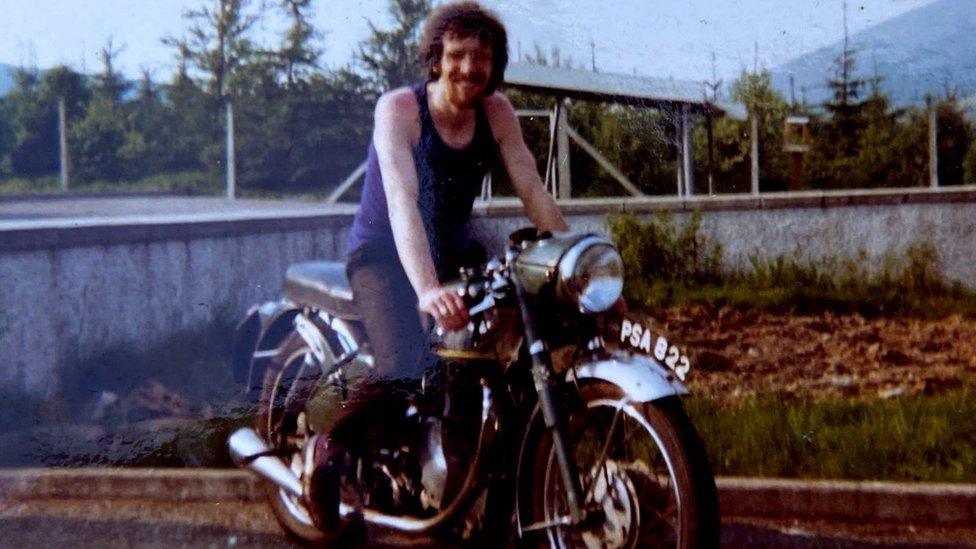
Former teacher Colin was a petrol head and the life of the party, says his son
In December 1983, he was sent to the town of Celle near Hanover by his employer Sedco, near a British military base.
Authorities in Germany established that on 18 December, Colin had been to a bar or restaurant and won some money in a casino.
Evan says he was told one line of inquiry was that his death was a robbery gone wrong. Another was that Colin had got into trouble with a local gang.
His body was found in the boot of a burned-out rental car in the woods.

Evan was six years old - his sister Gillian was two.
"Things don't necessarily get easier as time goes on, you just learn to live with it. It's become part of my story," Evan said.
"I remember as a teenager finding photograph albums and realising a lot of images I had in my head of my dad were actually photographs - that was quite hard at the time."
An investigation into the death took place involving the German and military police - but no answers were found.
After Babs died in 2010, Evan took on the push for information, writing to politicians and requesting access to the case files.
Following a TV appeal in January 2022, he was contacted by a friend who suggested putting the case to the Scottish Cold Case Unit at GCU.
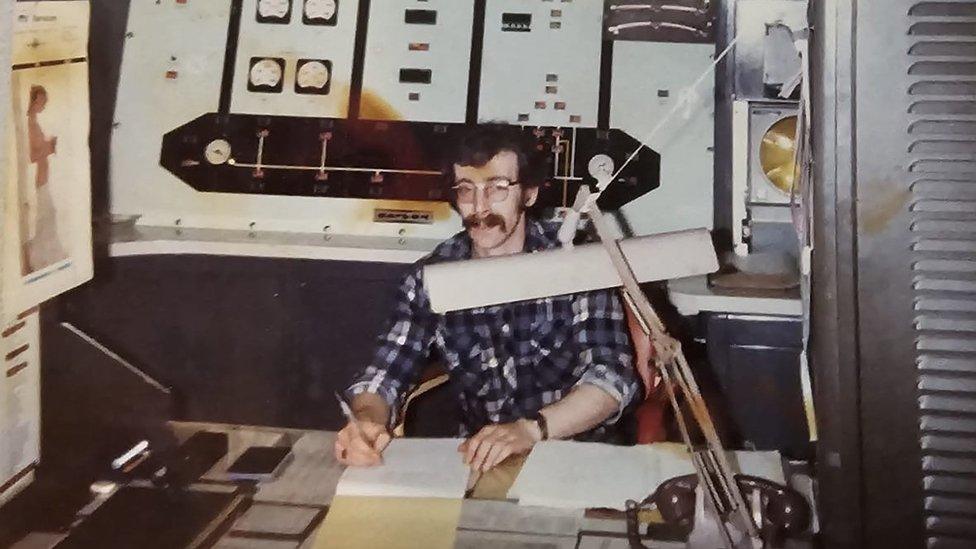
The team have since taken on the case and began sifting through details this month - coinciding with the 40th anniversary of Colin's death.
"It seems a strange word, but it's exciting," Evan said. "From everything I know everyone is enthusiastic about the circumstances in looking into everything.
"The students spend a few months initially looking at the case notes - if it needs longer it goes on longer and they just see if anything else can be investigated, if things can be moved forward.
"Because there were a couple of police forces involved in the past, even it's just a case of collating all the information so we've got a chronological idea of what happened then that itself is a big step forward."
Students from Glasgow Caledonian University have been involved with the cold cases project since 2021 and have reviewed 18 cases to date.
Prof Lesley McMillan, co-director of the Scottish Cold Case Unit at Glasgow Caledonian University, said: "The Scottish Cold Case Unit will review the case as part of an International Cold Case Analysis Project (ICCAP), conducted in association with Locate International, Amber Alert Europe and a range of international partners.
"We will undertake a comprehensive review to identify any further investigative opportunities."
- Published15 January 2024

- Published29 September 2022
